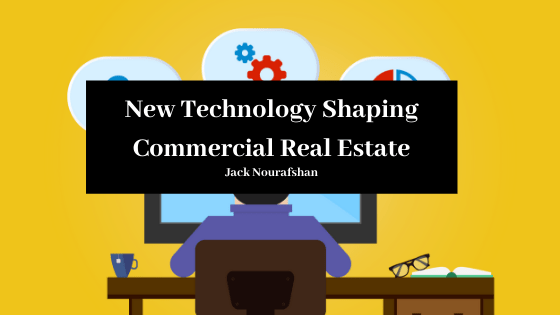Here is a breakdown of technology that is shaping commercial real estate.
More Tech and Less Space
Space requirements have been dropping which makes office infrastructure requirements change. As more and more companies manage remote teams it has become important to create design plans that have technology integrated into office spaces.
Things such as charging stations, Wi-Fi, video conferencing and power sources are essential to almost every business. To deliver those things through infrastructure buildings have to install and at times retrofit different technology. It can be a challenge while building enclosure systems that at times include interior walls, landscaping and water features.
Medical and healthcare office developers have increased the amount of technology they integrate into their projects. DAS (Distributed Antennae Systems) can be a great feature of a design plan. The system establishes a network of spatially separated nodes that connects different carriers to a common source, creating a center of coverage.
Online Market Will Increase Industrial Real Estate
The online retail market has been expanding at an increasing rate. The need for faster manufacturing and delivery will drive up the demand for bulk and light industrial properties. As more and more, consumers are completing the majority of their shopping online there has been a demand for more warehouse and distribution centers. The conversion opportunities in commercial real estate will continue to rise due to the demand.
Furthermore, as 3D printing becomes more popular in the United States manufacturing capabilities will increase which will further increase the need for warehouse and industrial spaces.
Automated Property Hunting and Buying
People have begun to use the internet to search for property. The pool of buyers can expand as sales and leasing brokers can provide prospective buyers with virtual tours. Virtual and augmented reality has provided commercial real estate investors with the ability to view properties without having to travel between locations. This technology can create more opportunities for professionals in distant markets.
Furthermore, contractors and project managers can use virtual and augmented reality during the construction phase to check in on the status of projects, without having to physically visit the sites.
The Internet of Things
The massive network, The internet of Things (loT) that enables everyday objects to collect and share data has helped commercial real estate professionals with major decisions. Smart sensors can monitor a property’s energy use, allowing the building owner to decide whether or not a solar panel investment would be worthwhile.
A security system enabled with loT can provide monitoring in real-time and direct mangers to maintenance or security before problems are even reported.
Even retailers are using loT devices to monitor consumers’ shopping habits.

